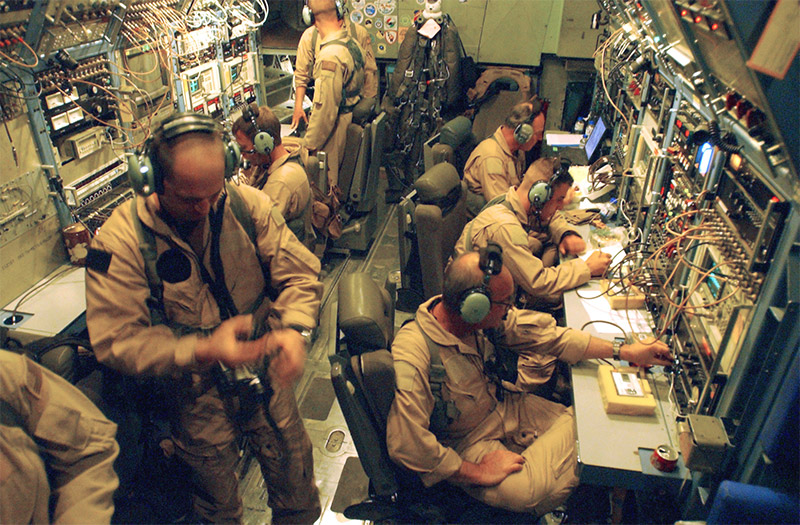
The most “expensive” direction of the Guest wifi solutions state program “Digital Economy” – “Information Infrastructure” – can be supplemented with projects such as high-speed Internet access to the network of military commissariats
By the end of 2021, as part of the Digital Economy program, a high-speed fiber-optic communication line (FOCL) to the Autonomous Region will be laid and 850 military commissariats across the country will be connected to the Internet. In addition, by 2024, 35 thousand medical and obstetric centers will have access to the Internet. Such plans are contained in the preliminary version of the federal project “Information Infrastructure”, which has developed a center of competence in the same direction. RBC has a copy of the project materials, their authenticity was confirmed by two members of the working group at ANO.
Another important initiative contained in the document is a proposal to change the goal stated in the program on the share of Russian data centers (DPCs) in the global volume of data storage and processing services, reducing it from 10 to 5%.
How the Digital Economy Program Has Changed
The government approved the Wifi6 wireless solutions program in the summer of 2017. At the end of 2017 and the beginning of 2018, action plans were approved in five areas of the program for 2018–2020 with a total budget of more than 500 billion rubles. Moreover, the direction “Information Infrastructure” turned out to be the most expensive – 436.6 billion rubles, of which 100 billion rubles. It is supposed to attract from the budget.
The Government, the Agency and others became founders of the Digital Economy ANO, which should form and coordinate the work of working groups and centers of competence in the areas of the program, evaluate the effectiveness of its implementation, prepare proposals for the development of the digital economy.
The preparation of the financial and economic substantiation of the project is still ongoing. The amount of funding compared with the approved version of the program will undergo changes due to the fact that the previously detailed action plan was approved until 2020, and the federal project is planned to be implemented until 2024.
The transformation of the Information Infrastructure area into a Outdoor wifi solutions project will definitely affect its financing, and a separate budget will be allocated. In addition, “the status of the project will increase,” as well as the level of responsibility of the performers.
More networks
How much the budget for the destinations will be affected by plans to connect Chukotka to the wired Internet, experts found it difficult to evaluate. Another large-scale project in this region – laying fiber-optic lines along the bottom of the Sea.
The construction of Wifi solution fiber optic links in should be considered as a strategic project – in the long run this decision will cost less for the state, since satellites have to be replaced when new communication standards appear. “With the change of 3G to 4G, traffic increased significantly, and it becomes increasingly difficult for a satellite to cope with increasing volumes of information,” he explained. According to Kuskov, partly the decision to conduct high-speed Internet on the peninsula can also be dictated by the fact that the region is important from the point of view of ensuring the country’s security.
It is also proposed to include in the federal project the items “Development and approval of a roadmap for implementing digital technologies in the work of the municipal services of the Ministry of Defense” and “Implementation of a roadmap for improving the efficiency of the property complex of the Ministry of Defense.” The Defense Ministry, the Ministry of Hotel wifi solution and Communications and the “organization selected by competition or designated as the sole contractor” will be responsible for both “cards”. A representative noted that the use of digital technologies to increase the efficiency of management and operation of the property of the Ministry of Defense “will still be diversified.”
The representative of the Ministry of Defense did not answer RBC questions.
At the same time, the provision of Internet to all military commissariats, as well as Cloud managed wifi solutions, will be carried out by the sole contractor on the basis of the state contract, the materials say. Earlier, the state chose Telecom as the sole executor for the project to eliminate digital inequality (connecting to the Internet settlements with 250-500 residents), connecting medical institutions to the Internet, and providing fixed-line services for government agencies. According to the representative of Telecom, the state will be the customer for new projects to connect Chukotka and new facilities in the country, it will determine the sources of financing, technical requirements, and the conditions for choosing performers.
The representative of the Ministry of Communications did not answer RBC questions.
When approving the preliminary version of the federal project, the working group recommended that bidding be provided for the provision of communication services and the use of service models when connecting to the Internet authorities, local governments and educational institutions. According to a RBC source close to the working group, business representatives want to provide competitive communication services based on the results of the auction, while Telecom expects to build the infrastructure by order of the appointment of a single supplier.
Less data
By 2024, the capacity of Russian commercial data centers should be 80 thousand racks (standard cabinets for equipment). The same indicator is indicated in the action plan, but in the new document, the target indicator for Russia’s share in the data storage and processing market is reduced from 10 to 5%. Market participants called the lowering of the bar logical, but point to the need to also reduce the goal for the number of racks. Last year, commercial data centers in Russia had 38 thousand racks. According to Dina Nurkaeva, director of strategic marketing at IXcellerate, in order to double this number, data center operators need to make serious investments, “the payback of which is in question.” “It’s not entirely clear where such a customer base could be taken from,” she said.
Another market participant says that the government’s reckoning that foreign customers will use seats in Russian data centers is unlikely to materialize. “Even at low prices, customers from Europe or the United States are unlikely to massively store their data in a data center in Siberia,” the source told RBC.
According to analysts of TMT Consulting, the Russian data center market in 2017 amounted to 23.6 billion rubles, which is 10.6% more than in 2016. This year, this market is expected to grow by 9% in terms of number of stays and by 13% in revenue. According to Tatyana Tolmacheva, iKS-Consulting partner, an indicator of 80 thousand racks can be achieved, but in the longer term.
Svetlana Savelyeva, head of the industry expertise development department of the Softline group of companies, noted that there is a tendency around the world to reduce the number of data centers and their space, consolidate computing resources and use cloud services of global providers (Amazon, Google, Microsoft).









